STORIES FROM THE PLATTELAND
Memories of Matjiesfontein’s storied Lord Milner Hotel
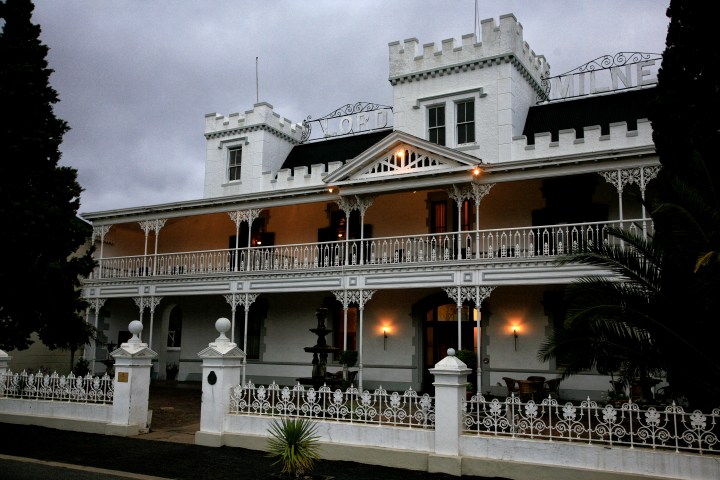
More than 150 years ago, a former railways porter with weak lungs and a vision, Jimmy Logan, came out to Matjiesfontein, somewhere between the Moordenaars Karoo, the Hantam and the biggest show of stars in the world.
Back in the late Victorian era, England resembled a coal scuttle. Her cities were blackened industrial hulks, her workers had something called consumption — known today as tuberculosis — and a lungful of fresh air was at a premium. To the ailing colonial arrivals like Olive Schreiner, a middle-of-nowhere spot like Matjiesfontein was the perfect place to recuperate. And thus Matjiesfontein Village was born, a very British Victorian railside settlement catering to train passengers and ‘lungers’ alike.
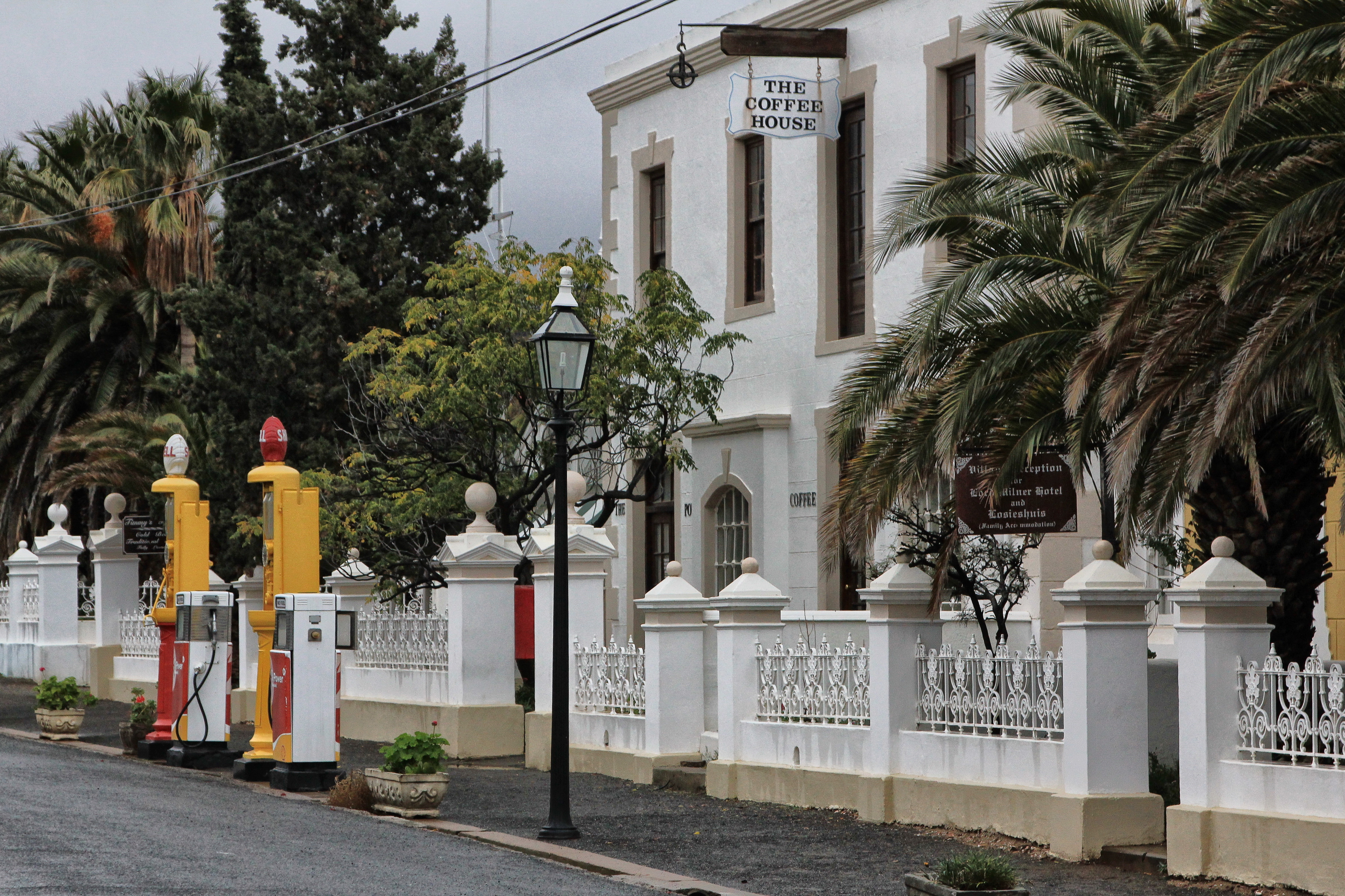
The fixtures and fittings of Matjiesfontein are from another century. (Photo: Chris Marais)
Logan, a railways man, had the ‘knack of the Karoo’, which involves the ability to look past bleak landscapes and barren horizons and see opportunity. He worked out that locomotives crossing the Karoo would each need 250,000 litres of water. Logan found a source of water in the area and piped it down to Matjiesfontein where, in November 1889, he launched an elaborate ‘water world’.
To celebrate Logan’s water in the wilderness, he invited hundreds of Victorian-era, mostly Cape Town-based, A-listers to a party that featured an exhibition cricket match, croquet games, bouts of clay-pigeon shooting and billiards encounters. A grand lunch was served in a spruced-up railway shed and Matjiesfontein was officially on the bucket list of world travel. Logan had, in the words of popular Karoo historian Rose Willis, managed to “pull a village out of a hat”.
Now he was selling fresh air to tourists — and water to the railways.
At Matjiesfontein, the guest list included the likes of Sir Randolph Churchill, Edgar Wallace (author and founding editor of the late and lamented Rand Daily Mail newspaper in Johannesburg), Prime Minister John X Merriman, and the entire English cricket XI, who often toured the Cape at Logan’s expense.
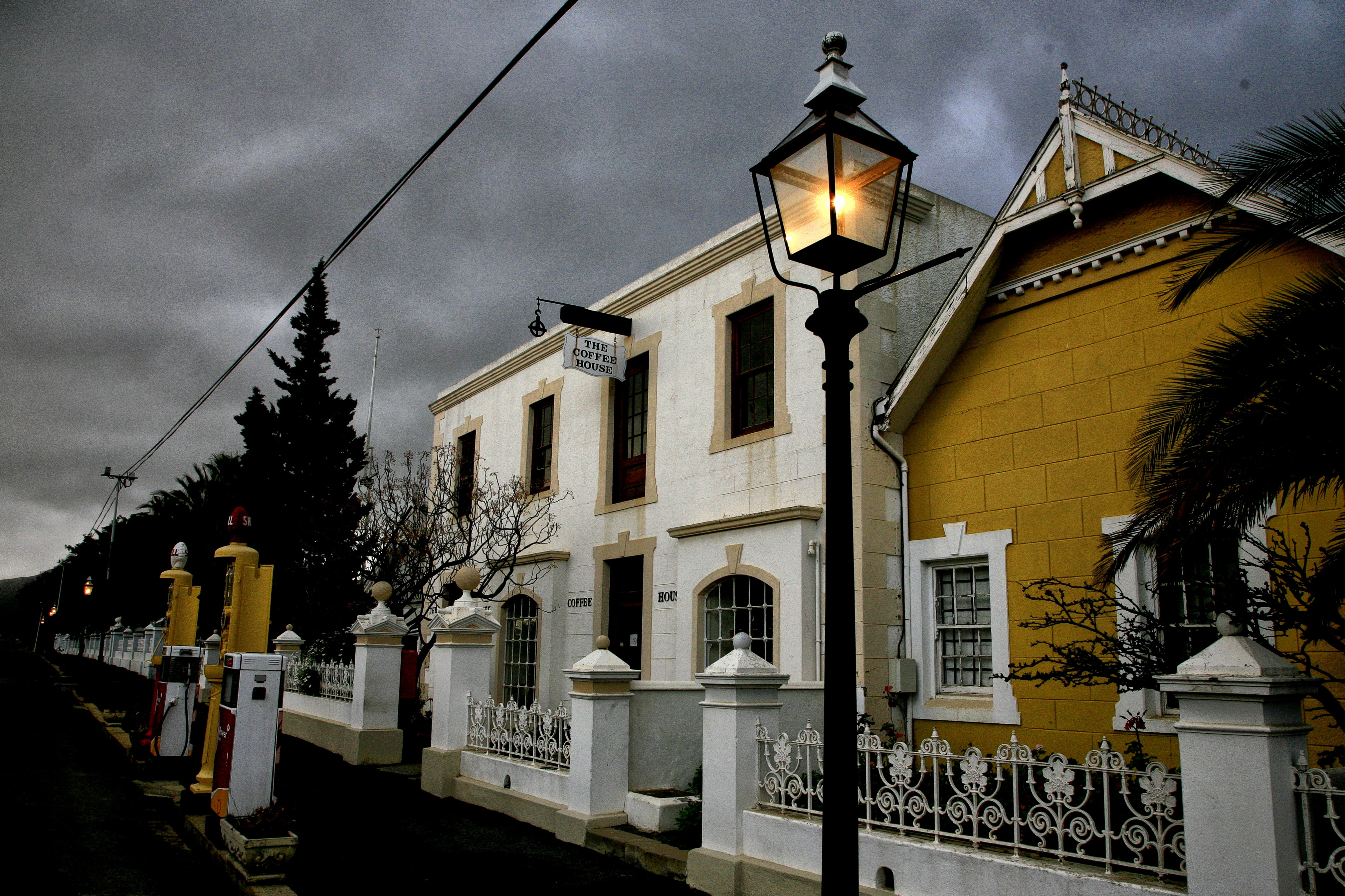
The streetlights were imported by Jimmy Logan from Britain. (Photo: Chris Marais)
With the money he made catering to the railways, Logan began to import building materials and recreated a London suburban street. He brought electric lighting to his nearby farm, Tweedside, where he also pioneered the flush toilet system. He kept finding excellent water sources and establishing fruit orchards in places where only dust and hardy succulents had grown before. There were London street lamps and cooldrink factories, and when the Anglo-Boer War (now called the South African War) broke out, he put together a 100-man squad to fight the Boers on behalf of the queen.
There also seemed to have been a mix-up when the Boers defeated the Highland Brigade up at Magersfontein, just south of Kimberley. The British commanding officer, Major-General Andrew Wauchope, was killed and later buried near Modder River. The story goes that shortly after Wauchope’s military funeral, Logan pitched up with a letter from the general’s widow back in England, giving him permission to have the body exhumed and re-buried at Matjiesfontein. And although Mrs Wauchope probably got her ‘fountains’ a little muddled, her husband now rests with Jimmy and a number of other famous stalwarts in a quiet little graveyard not far from the village.
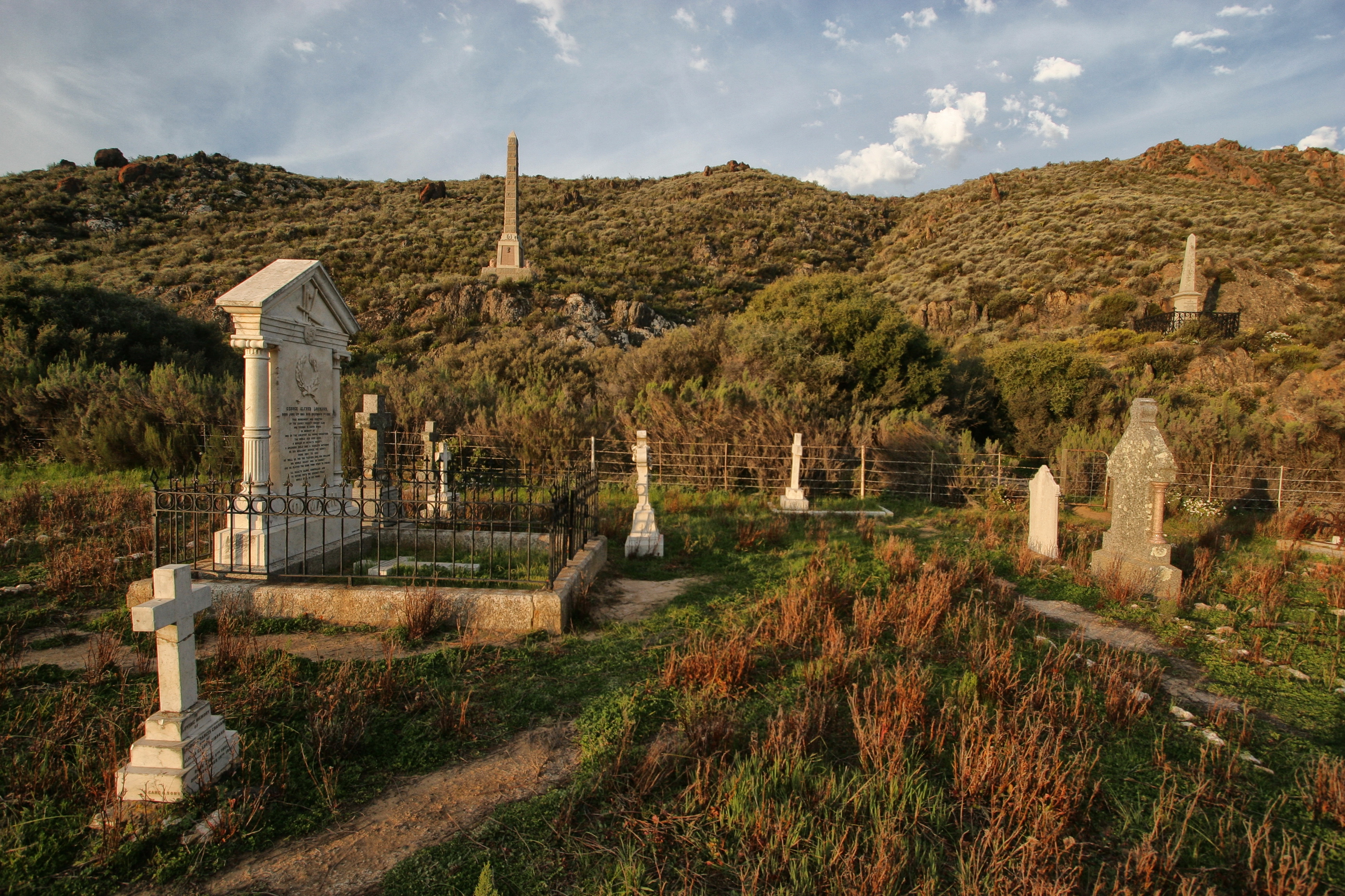
Matjiesfontein Cemetery, where some of SA’s most notable colonial-era figures rest. (Photo: Chris Marais)
A love affair with a village
In late 2008, we found the second laird of Matjiesfontein, David Rawdon, sitting in his high-ceilinged office at the Lord Milner Hotel, looking out of his window at the driving summer showers, with a celebratory glass of bubbly to hand.
The Blue Train had just been. Rovos Rail was expected to pass by. Even the Shosholoza Meyl was coming at some stage. Matjiesfontein Station, unlike hundreds of other desert sidings throughout the Karoo, was alive and working. Tourists, driving overland through the vast plains from Three Sisters, had come for a quick pub lunch before pushing on to Cape Town on the N1. Although he’d owned this quaint little Victorian village in the deep Karoo since 1968, Rawdon had only really been in residence here for three years.
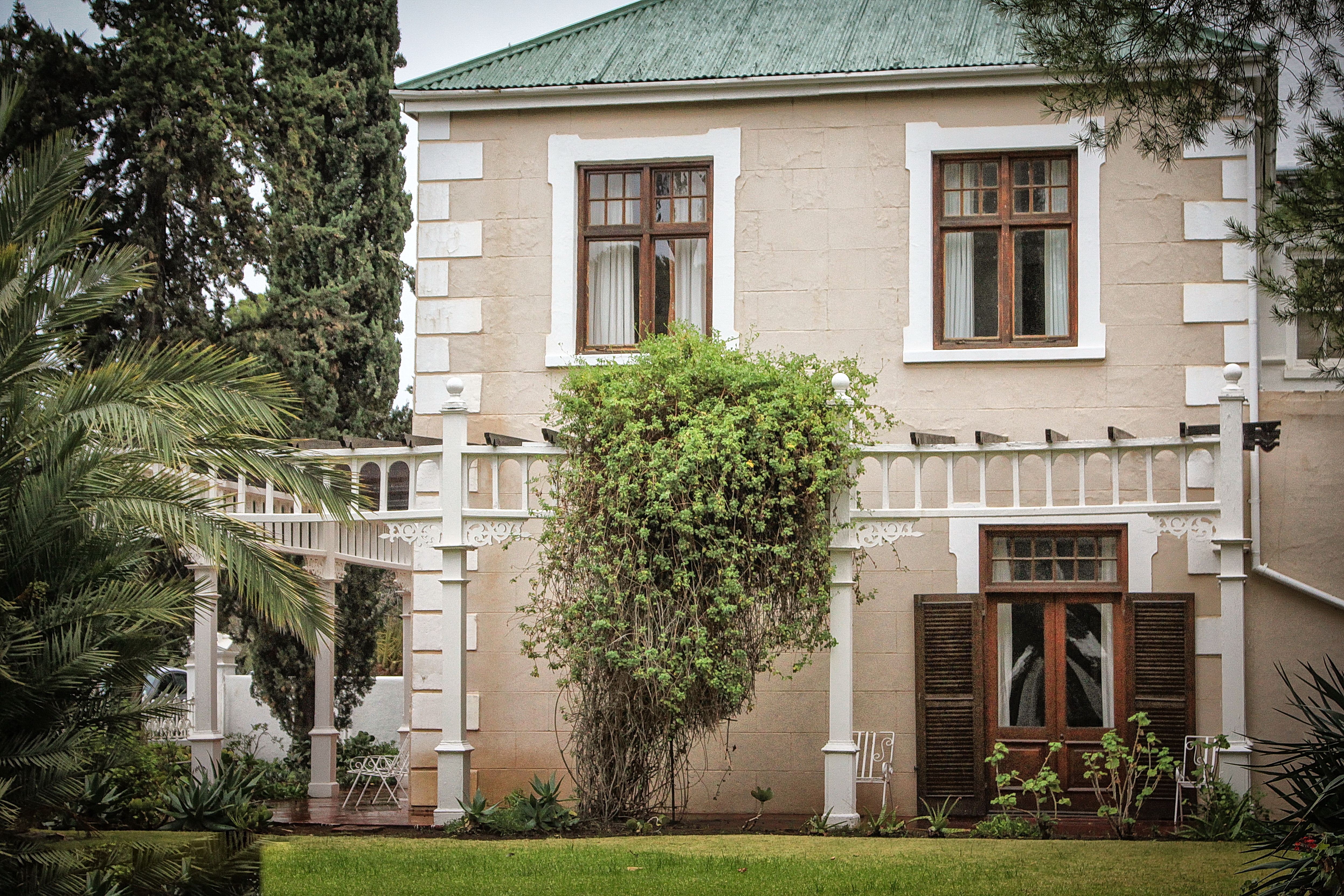
Reston Villa – one of the hotel annexes. (Photo: Chris Marais)
“I would have loved to have met Jimmy Logan,” Rawdon sighed as the rain cleared, and droves of hotel guests stalked the street outside like sodden locusts in plastic raincoats.
We were ensconced in the grand Reston Villa, our own overnight mansion right next door to the Lord Milner. I was sure Rex Harrison, Dick van Dyke, Prince Charles and the Mary Poppins penguins would step out of the woodwork at any given time. Such is the otherworldly spell of Matjiesfontein that one often has to cast one’s eyes up to the pale khaki-coloured Witteberg range looming in the south, to understand one is actually in the Karoo out here.
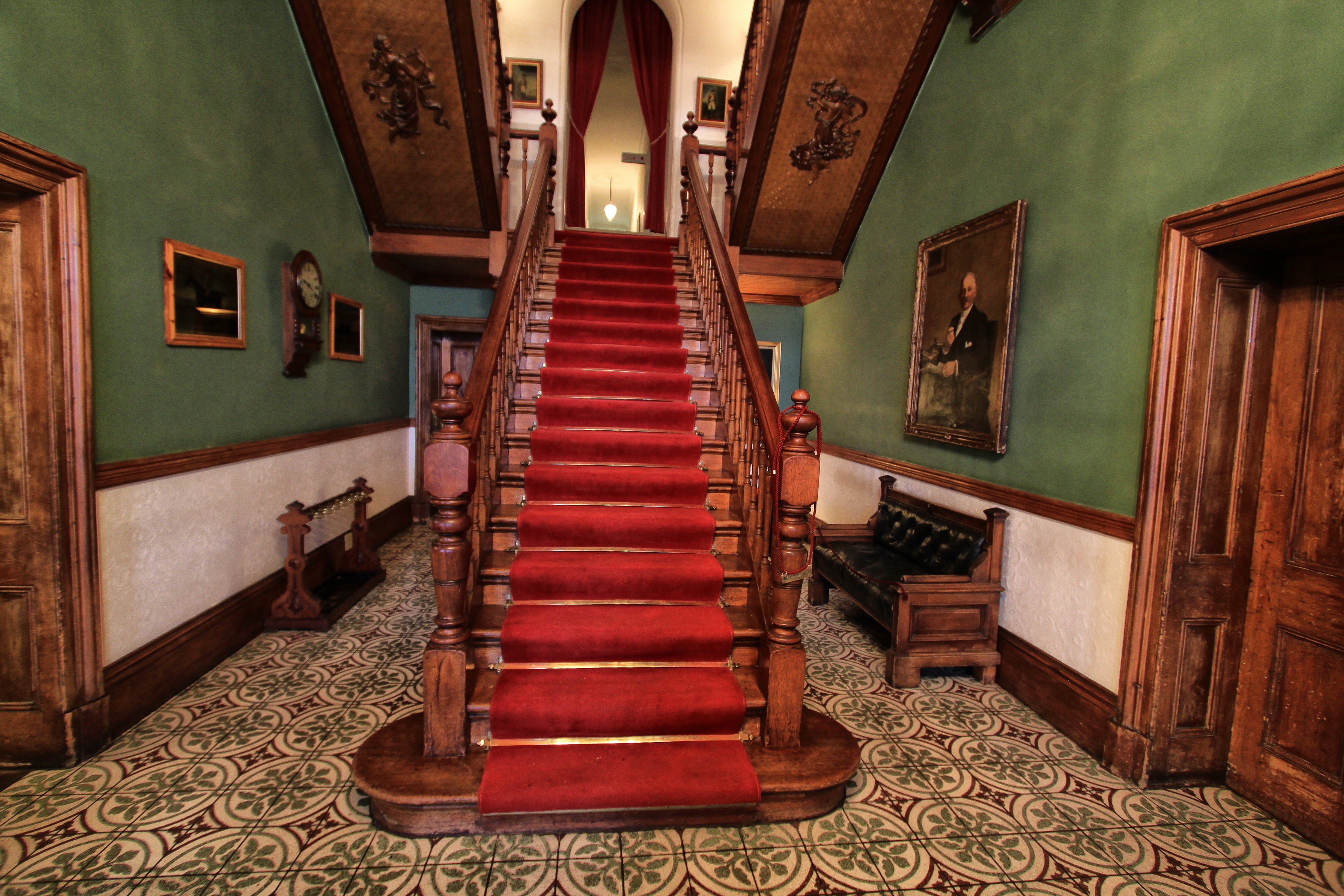
Up the main staircase of the Lord Milner Hotel, which looks pretty much like it did a century ago. (Photo: Chris Marais)
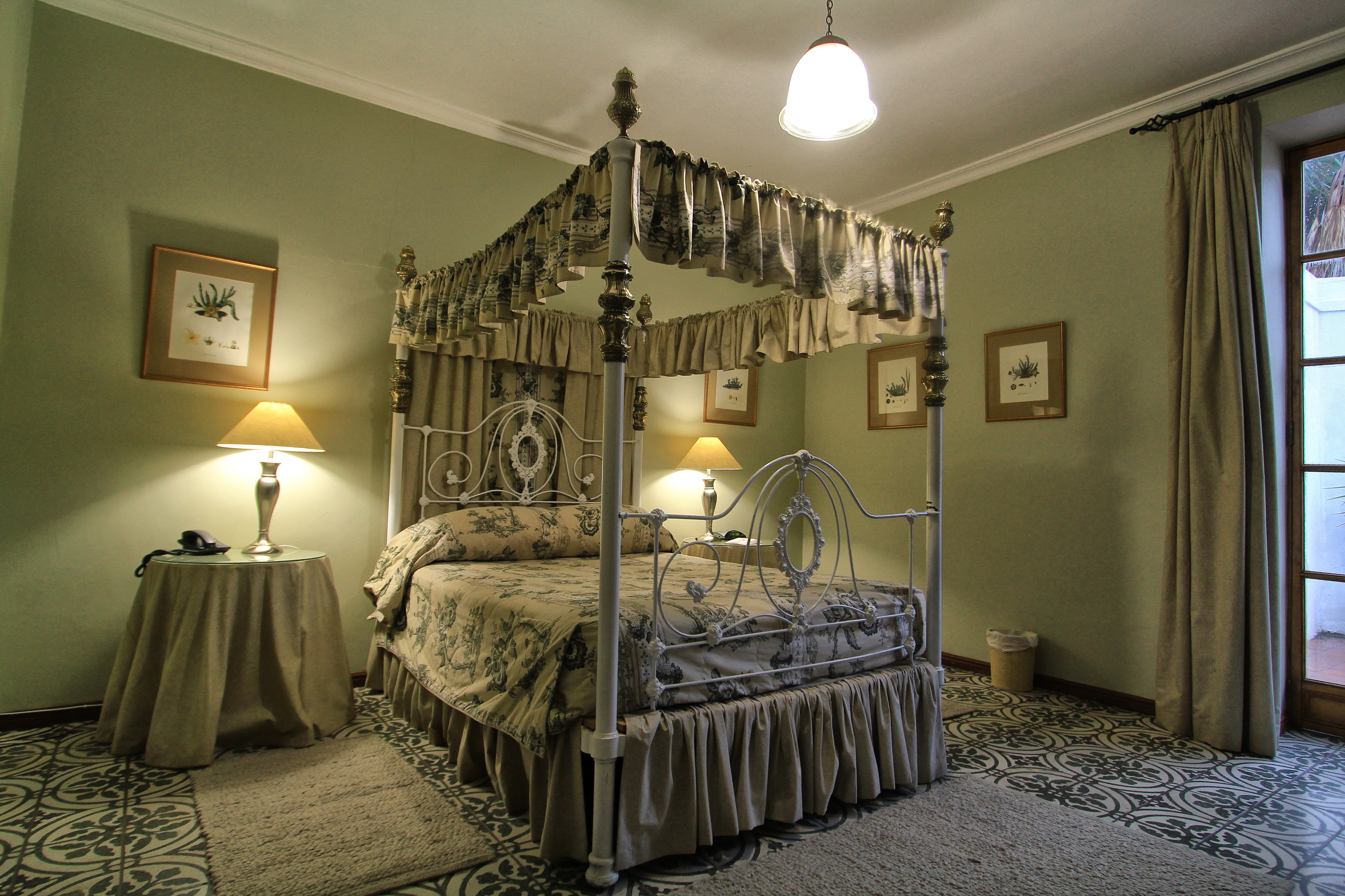
One of the four-postered bedrooms at the Lord Milner Hotel. (Photo: Chris Marais)
In the 1960s, Rawdon’s mother Marie told her son about Matjiesfontein. She recalled stopping here for a meal at the hotel while on a trans-Karoo train trip. And, having been a domestic science teacher, she made an interesting observation. “Logan was very clever,” she told Rawdon. “You’d pay for your meal in advance, but the soup was so hot you barely got through that before the whistle blew and it was time to board the train again.”
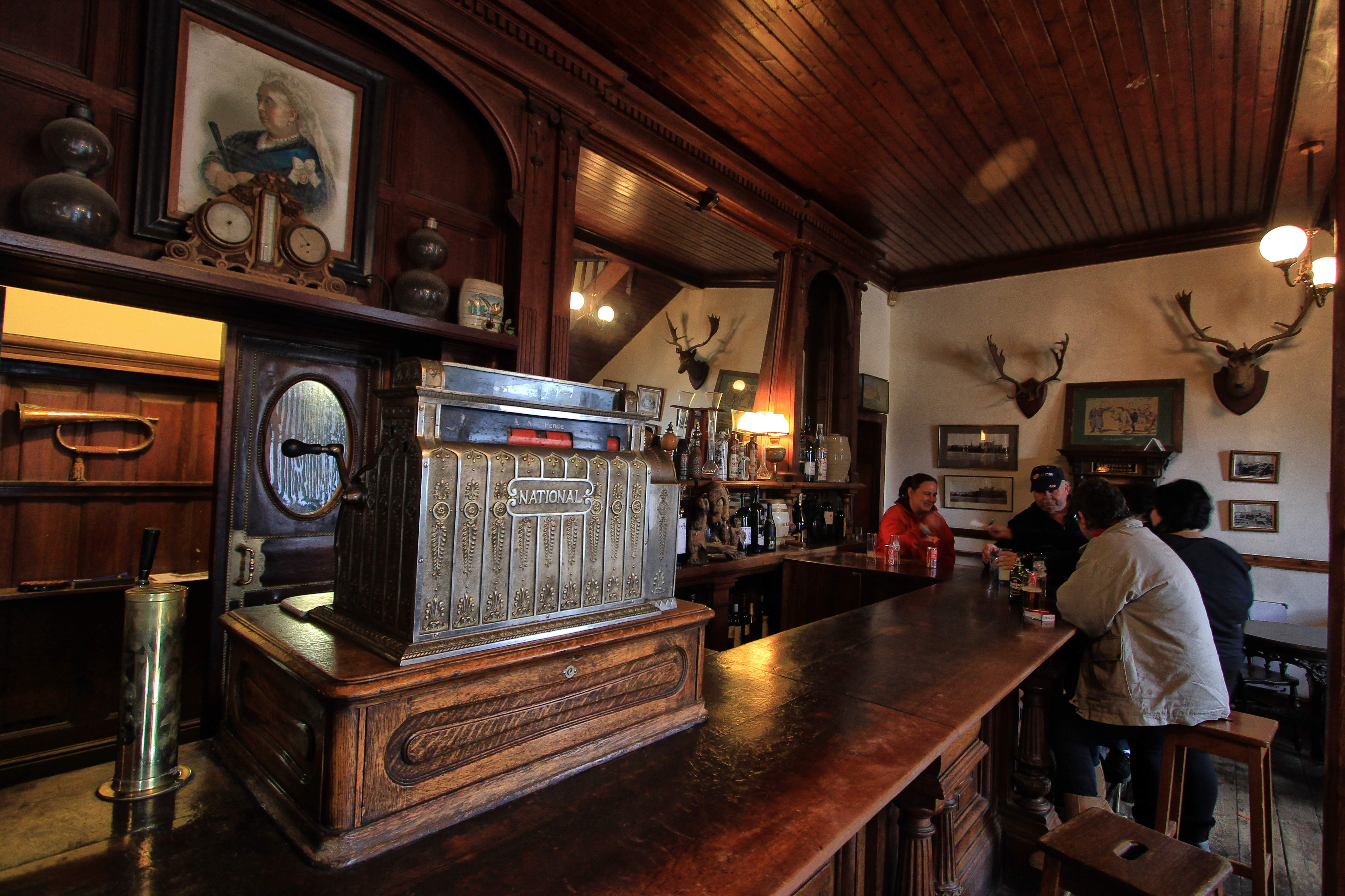
Inside The Laird’s Arms, where old Queen Victoria keeps watch on the proceedings. (Photo: Chris Marais)
The place intrigued Rawdon. Then he heard an architect had made an offer and that Logan’s heir Major John Buist had rejected it with contempt. Still, he had an instinctive feeling that if he offered the right amount of money, Buist would accept it. In the end, Rawdon made him a good offer, which included granting the major usufruct rights to Tweedside Lodge. Major Buist never left. He died there in 2005, at the age of 91.
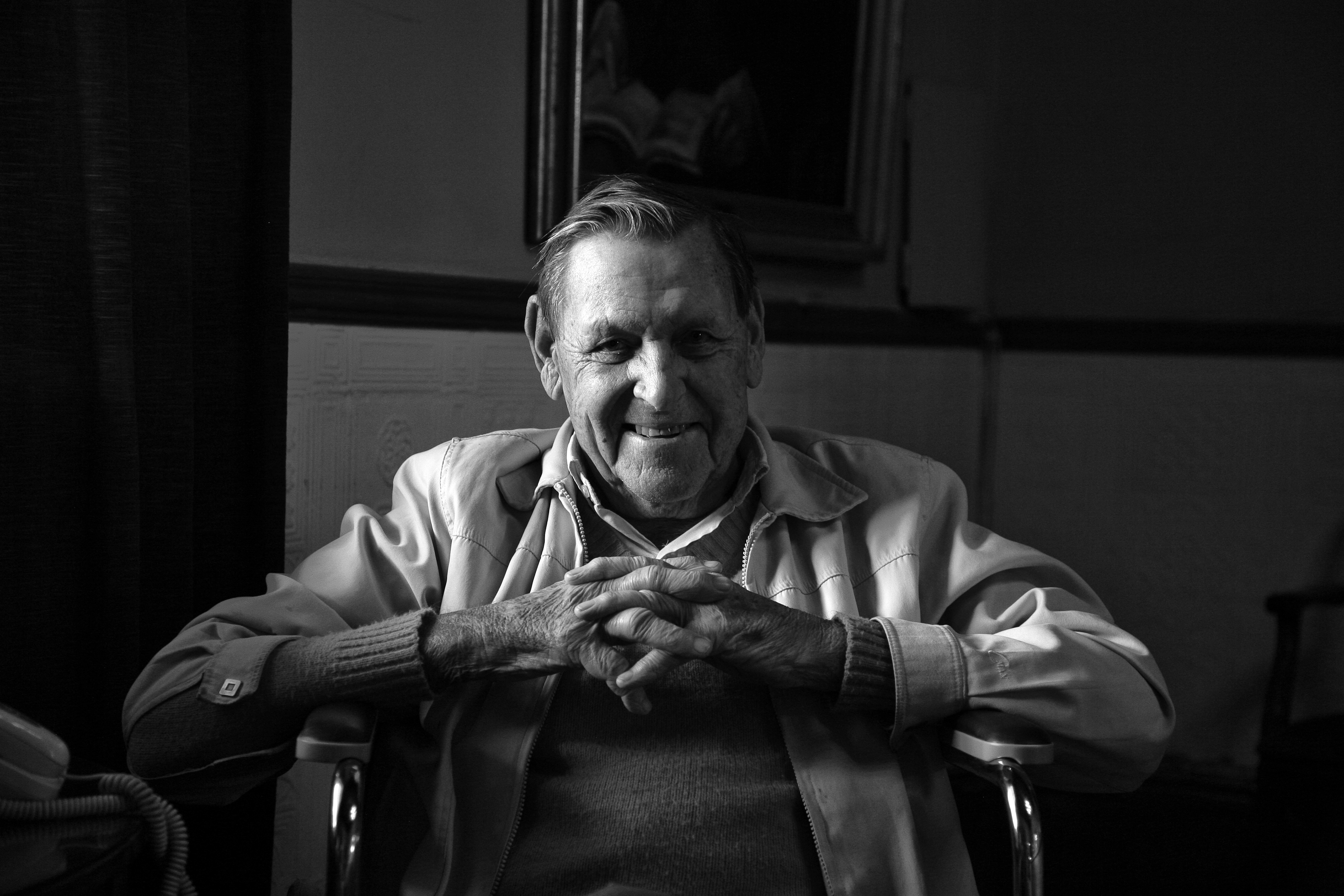
The late David Rawdon – the Second Laird of Matjiesfontein. (Photo: Chris Marais)
Chase the challenge
Sitting in his office under the imposing portraits of Jimmy Logan and Lord Milner, 84 years of age and frail in body, Rawdon’s eyes lit up as he spoke of his latest mission: to re-brand Matjiesfontein as a Karoo health resort.
The former Northern Transvaal rugby player, World War 2 Air Force gunner and decorating maven has always thrived on big projects. He bought a wine farm called Lanzerac in 1958 and turned it into one of the finest country hotels in the world. He took over Matjiesfontein and, after extensive renovations, re-launched it in 1970. Ten years later, Rawdon bought the Marine Hotel, renovated it and later sold it to the legendary Liz McGrath, who also owns the Plettenberg and the Cellars-Hohenort in Constantia, Cape Town.
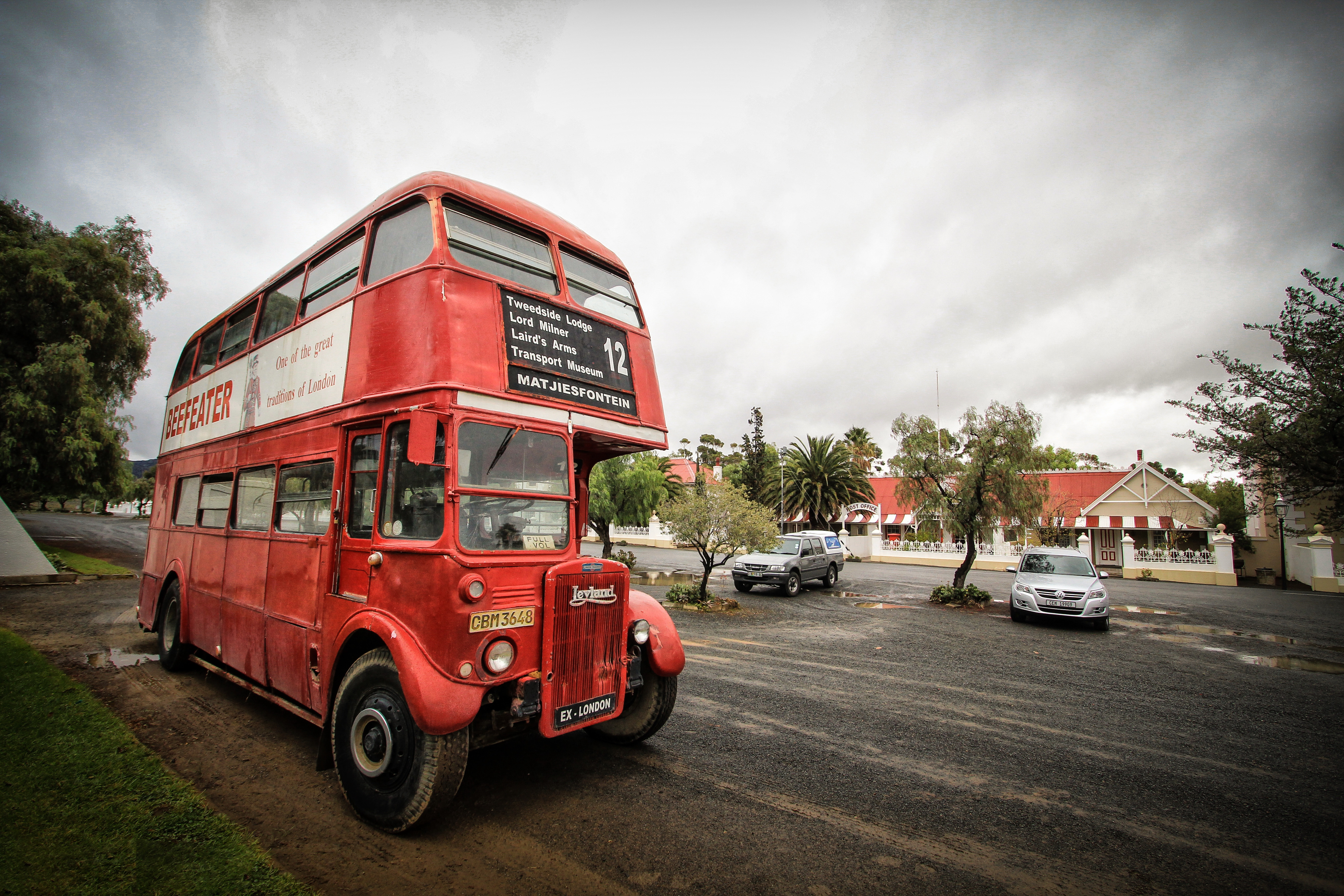
The London bus that takes you on a 10-minute evening tour of the village. (Photo: Chris Marais)
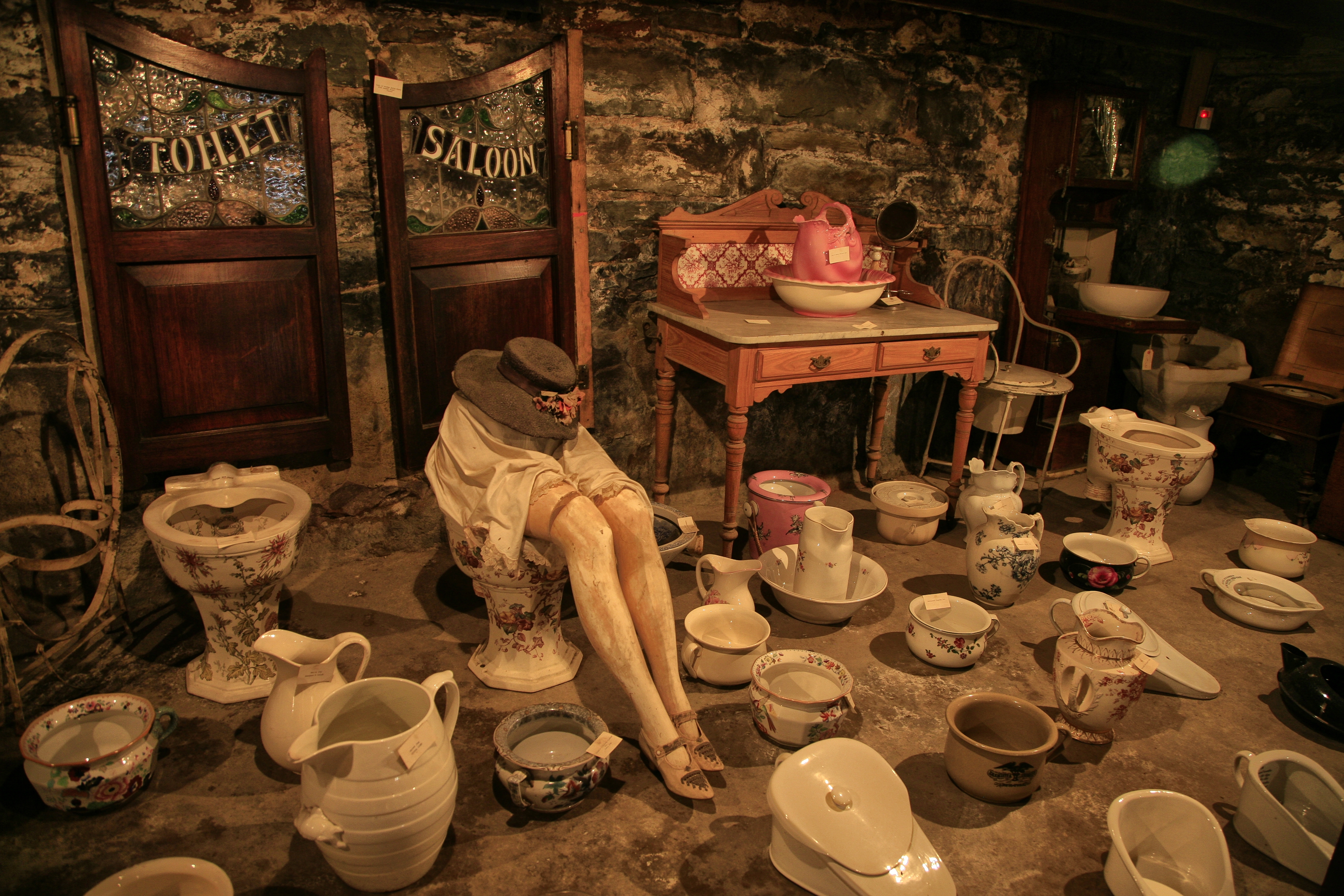
The Toilet Saloon, part of the Marie Rawdon Museum exhibits. (Photo: Chris Marais)
“And now I’m back in Matjiesfontein,” said the only permanent resident of the village. “I would not want to live anywhere else on Earth.”
We asked him what his big life lesson had been.
“Always put in double the amount of trouble,” he replied. “And chase the challenge, rather than the money.” DM
David Rawdon died on 13 August 2010. The Lord Milner Hotel in Matjiesfontein still thrives. This is an extract from Karoo Roads I – Tales from South Africa’s Heartland, by Chris Marais and Julienne du Toit. For an insider’s view on life in the Dry Country, get the three-book special of Karoo Roads I, Karoo Roads II and Karoo Roads III (illustrated with black-and-white photographs) for only R800, including courier costs in South Africa. For more details, contact Julie at [email protected]



















I recall two wonderful characters from a few years ago; one was the barman and the other the hotel doorman/maitre de…. I wonder if they are both still there?
Time for a re-visit to find out!!
Fantastic ,brings back memories ,when I stayed over in the hotel,the sa musketeers championship took place there